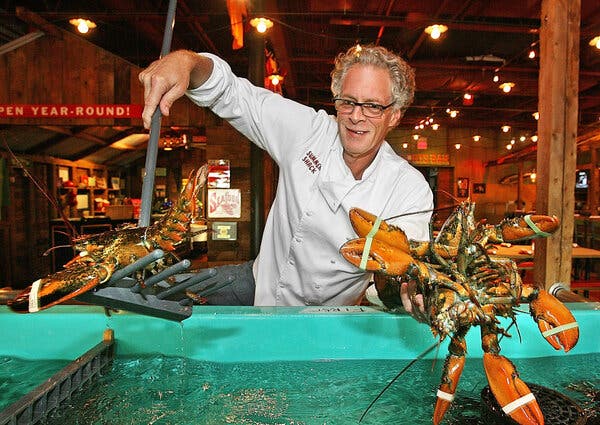At Restaurant Jasper in the North End of Boston, and later with a small chain of family-friendly seafood establishments, he focused relentlessly on regional ingredients.
Listen to this article · 5:05 min Learn more
Jasper White, a chef who put New England’s traditional foods on the fine-dining map in the 1980s and mentored a generation of Boston-area chefs, died on Saturday in Boston. He was 69.
His death, at a hospital, was caused by a brain aneurysm, his wife, Kathleen White, said.
At Restaurant Jasper in the North End of Boston, which was open from 1983 to 1995, and later at Jasper White’s Summer Shack, in three locations, Mr. White’s cooking was relentlessly focused on New England ingredients.
“As a chef and as an advocate, he was more responsible than anyone for the revival of oysters and oyster bars in New England,” said Skip Bennett, the founder of Island Creek Oysters, an oyster farm and distributor in Duxbury, Mass.
At a time when Boston’s destination-worthy dishes still included cornmeal pudding at the venerable Durgin-Park restaurant and fish chowder at the upmarket chain Legal Sea Foods, Mr. White developed an elegant but accessible style, based on local and seasonal ingredients like oysters, corn, maple and blueberries.
He neatly encapsulated his approach in his signature dish, pan-roasted lobster, in which he used a Cantonese butchering method, applied a French flambé technique to American bourbon and pulled the flavors together with lashings of butter and fresh herbs. He used maple sugar instead of white sugar to caramelize crème brûlée. He spiked Boston baked beans, traditionally flavored by molasses and salt pork, with thyme, Worcestershire sauce and cider vinegar.
Mr. White received a bachelor’s degree from the Culinary Institute of America in 1976, one of the first classes to graduate after the school, in Hyde Park, N.Y., was accredited in 1971. American chefs were just beginning to express the pride in local ingredients and diverse cooking traditions that led to the New American food revolution. Trained in Old-World tradition, they chafed at the strictness of what was then known as Continental cuisine, based on French recipes and taught at hotel schools around Europe.
Thank you for your patience while we verify access.
